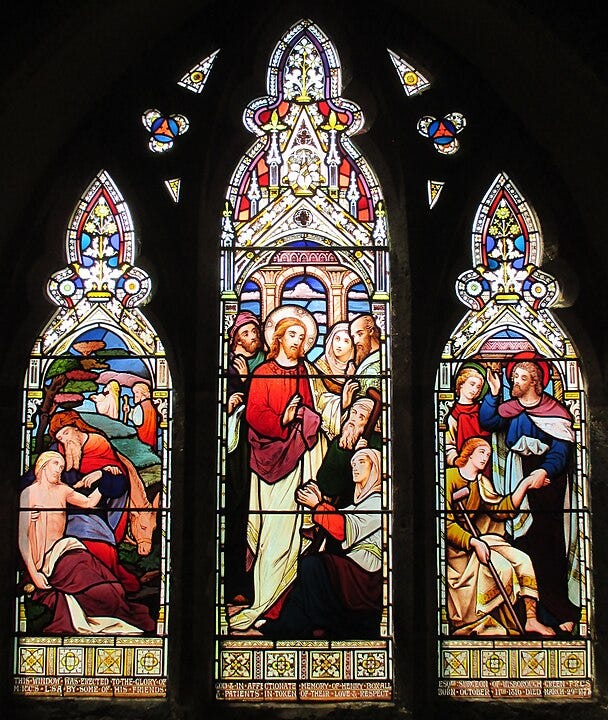…a woman was there who had been subject to bleeding for twelve years. She had suffered a great deal under the care of many doctors and had spent all she had, yet instead of getting better she grew worse. When she heard about Jesus, she came up behind him in the crowd and touched his cloak, because she thought, “If I just touch his clothes, I will be healed.” Immediately her bleeding stopped and she felt in her body that she was freed from her suffering… He said to her, “Daughter, your faith has healed you. Go in peace and be freed from your suffering.”
Mark 5:25-29, 34
Since the start of my Edgren Scholars project, many have asked me why gender equality and women’s history are so important to me. Truthfully, there is no one answer that sums all of the reasons. In part, it lies within the wonderful women who’ve encouraged and shaped my life. But perhaps most especially, is the experience I’ve had with my own body—the one thing that is most often used to pinpoint what the words “feminine” or “woman” really mean.
I’ve never been quiet about my struggles with my health. For years, my body bled and ached and often left me bedridden with a heating pad for days on end. At a young 16 years old, I received a weighty diagnosis: endometriosis. Along the journey to this diagnosis and since, I have been accompanied by a multitude of feelings and questions:
• Will the physical pain ever go away?
• Would I be able to have children (and did I even want them)?
• Is my body a failure?
• Am I broken?
• Shame, disgust, fear, pain, sadness, guilt.
For years, I felt ashamed for the emotional and physical pain that comes with my chronic reproductive illness. I was laughed at by other girls in my class for not “hiding it well enough.” Teachers were often in disbelief over my symptoms and the need to miss several days of school per month. And these are not experiences exclusive to my life. Over 10% of women around the globe have endometriosis, affecting their physical and mental health, fertility, hobbies, and careers.
Healing is hard to come by for many chronic illnesses. It is one thing to heal the physical ills, but a whole other to address the mental and spiritual wounds left in its wake. Despite belonging to a church that I love, it has been hard to find the healing that I’ve searched for. In many Christian circles, I have witnessed that many still assume that God created and commanded women solely to maintain a healthy body, become wives and mothers, and have several children. However, within my parish community and under the care of my Bethel professors, I have been guided to the stories and interactions of Jesus and women in the Bible.

I perhaps see myself most within the hemorrhaging woman. The woman, bleeding for 12 years straight (a possible female reproductive health issue) reaches for Jesus in her anguish, despite the fact that her society considered her to be impure and unclean. In this moment Jesus heals her and says, “Daughter, your faith has made you well. Go in peace, and be cured of your disease” (Mark 5:34).
In this moment Jesus’s healing power showed the woman, and all of us, that we ought to feel no shame, guilt, or disgust. We can bring all of our problems to Him. We are whole, beautiful, and made clean by our faith, not by our bodies and their functions.
The road has been long, the journey rocky, but with the reminders I’ve found in the Word Made Flesh, no more am I merely a shell of what I was told I was meant to be, but sent out rejuvenated to live my life and my faith through the spiritual gifts God has given.
Prayer
Lord, during this Women’s History and Endometriosis Awareness Month and every month, bind me to you and sustain me through your nature. In the trials of my earthly life, place your wisdom upon my heart, mind, and soul so that I may know that all shall be well within your steadfast love for us. Amen.1
Ellie Heebsh is a senior History, Digital Humanities, and Biblical and Theological Studies student and Archives student worker at Bethel University. With a passion for women’s history, she spent the summer of 2024 alongside her professors conducting interviews for their Edgren Scholars project, “Women at Bethel: An Oral History.”
Adapted from St. Hildegard von Bingen, Revelations of Divine Love.



